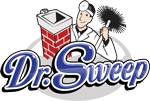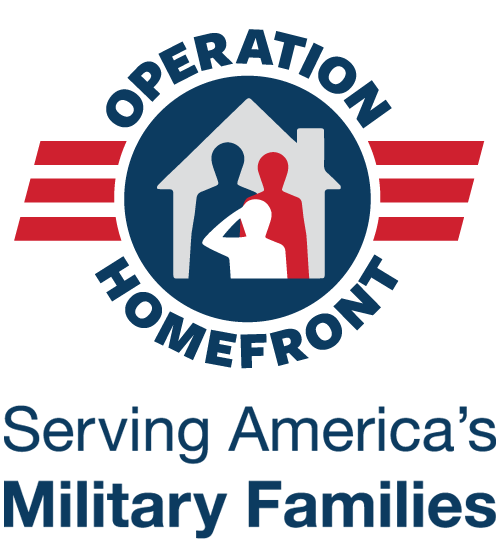Chimney flue maintenance in the Detroit Metropolitan Area is crucial for safety. Schedule annual inspections before the heating season to check for blockages and structural damage. Clean the flue thoroughly to remove creosote and debris, preventing fire hazards. Ensure proper ventilation by installing chimney caps to inhibit airflow obstruction and checking flue size for efficiency. Be vigilant for common issues like moisture intrusion and blockages from debris or nests. Hiring qualified professionals who are familiar with local codes is recommended. For an in-depth look at maintenance schedules and additional tips, further information is just ahead.
Key Takeaways
- Schedule annual professional inspections before heating season to assess flue integrity and remove blockages or creosote buildup.
- Install a chimney cap with a screen to prevent debris, animals, and airflow obstructions.
- Monitor for creosote accumulation and structural damage to avoid chimney fires and ensure efficient operation.
- Follow a seasonal maintenance checklist, inspecting and cleaning flues thoroughly each spring, summer, and fall.
- Hire certified chimney sweeps familiar with local codes and regulations to ensure safe and effective maintenance.
Regular Inspections and Cleaning
To ensure the safe and efficient operation of your chimney flue, regular inspections and cleaning are essential. Neglecting these practices in Warren, MI, can lead to hazardous situations, including chimney fires and carbon monoxide buildup.
It is crucial to schedule professional flue inspections at least once a year, particularly before the heating season. During these inspections, trained technicians will assess the integrity of the flue, checking for blockages, cracks, or other damage that could compromise safety.
In addition to professional inspections, homeowners should adopt proactive chimney cleaning tips. Regularly remove debris and creosote buildup, which can ignite and pose a fire risk.
Utilizing a chimney brush specifically designed for your flue type is advisable for effective cleaning. Furthermore, consider installing a chimney cap to prevent debris and animals from entering the flue.
Proper Ventilation Techniques
Proper ventilation is vital for the safe operation of a chimney flue, complementing regular inspections and cleaning. Effective ventilation ensures that combustion gases are properly expelled from your home, reducing the risk of harmful fumes entering your living space. To achieve optimal ventilation, it is crucial to maintain a clear pathway from the fireplace or appliance to the chimney top.
One effective technique is to install a chimney cap with a built-in screen to prevent debris, animals, and moisture from obstructing airflow. Additionally, ensure that the flue is the appropriate size for the appliance it serves; improper sizing can lead to inadequate venting and backdrafting issues.
Regularly check for blockages, such as soot buildup or creosote deposits, which can impede airflow and diminish chimney performance.
Another important aspect of proper ventilation is ensuring adequate air supply within the home. Make certain that there are sufficient air intakes, such as open windows or vents, to allow fresh air to enter while the chimney is in operation.
Identify Common Issues
Chimney flues, while essential for safe ventilation, can encounter a variety of common issues that compromise their effectiveness. One prevalent problem is creosote buildup, a flammable substance that accumulates from burning wood. Over time, excessive creosote can lead to chimney fires, making regular inspections crucial.
Another issue is blockages caused by debris, such as leaves, animal nests, or soot. These obstructions can restrict airflow, resulting in poor combustion, smoke backup into the home, and increased carbon monoxide levels, posing serious health risks.
Structural damage is also a concern, particularly in older flues. Cracks or gaps can allow smoke and gases to escape into living spaces, creating hazardous conditions. Additionally, improper installation or deterioration of chimney liners can lead to corrosion and inefficiency in venting.
Lastly, moisture intrusion can cause significant damage to both the flue and the chimney structure. Water can erode masonry and promote the growth of harmful mold and mildew.
Identifying these common issues early on is vital for maintaining a safe and effective chimney flue system. Regular inspections and timely interventions can significantly mitigate these risks.
Seasonal Maintenance Checklist
Regular maintenance of your chimney flue is essential to ensure its safe and efficient operation. A seasonal maintenance checklist can help you identify and address potential issues before they escalate into serious problems.
In the spring, after the heating season, inspect the exterior of your chimney for any signs of damage, such as cracks or loose bricks. Check the cap and flashing for integrity, ensuring they prevent water intrusion.
Internally, look for soot buildup and signs of obstructions in the flue.
During the summer, consider cleaning the chimney flue thoroughly, as this is often the best time to remove creosote and debris. Inspect the damper for proper function, ensuring it opens and closes smoothly.
As fall approaches, prepare your chimney for the heating season. Schedule a thorough inspection and sweeping, if necessary.
Ensure that the smoke shelf is clean and that the flue is free of blockages.
Hiring Professional Services
When it comes to maintaining your chimney flue, enlisting chimney sweep services can significantly enhance safety and efficiency.
Professional chimney sweeps possess the expertise and specialized tools necessary for thorough inspections and cleanings that go beyond basic homeowner capabilities.
Engaging a qualified technician ensures that your chimney flue is free from blockages and creosote buildup, which are common causes of chimney fires.
These professionals are trained to identify potential issues, such as structural damage or improper ventilation, that may go unnoticed during routine checks.
Moreover, hiring an experienced service can provide peace of mind, as they often carry insurance and are familiar with local building codes and regulations in the Detroit Metropolitan Area.
This knowledge guarantees that all work meets safety standards, potentially preventing costly repairs in the future.
When selecting a chimney service, look for certifications from recognized organizations, read customer reviews, and request estimates from multiple providers.
By investing in professional maintenance, you not only enhance the lifespan of your chimney but also ensure a safer environment for your home and family.
Regular professional upkeep is a proactive step towards responsible home ownership.
Chimney Sweep Expertise in the Detroit Metropolitan Area: Ensuring Safety and Efficiency
Diligent maintenance of chimney flues is essential for ensuring safety and efficiency in residential heating systems, particularly in the Detroit Metropolitan Area. Dr Sweep knows that adhering to routine inspections, implementing proper cleaning techniques, and recognizing common issues can significantly reduce the risks associated with chimney fires and carbon monoxide leaks. By following a thorough seasonal maintenance checklist and considering professional services when necessary, homeowners can extend the life of their chimney systems and create a safer living environment during the colder months. Trust Dr Sweep to handle all your chimney flue maintenance needs, ensuring your home stays safe and warm year-round.
Dr Sweep
24800 Warner Ave suite 103, Warren, MI 48091
(248) 639-4897



